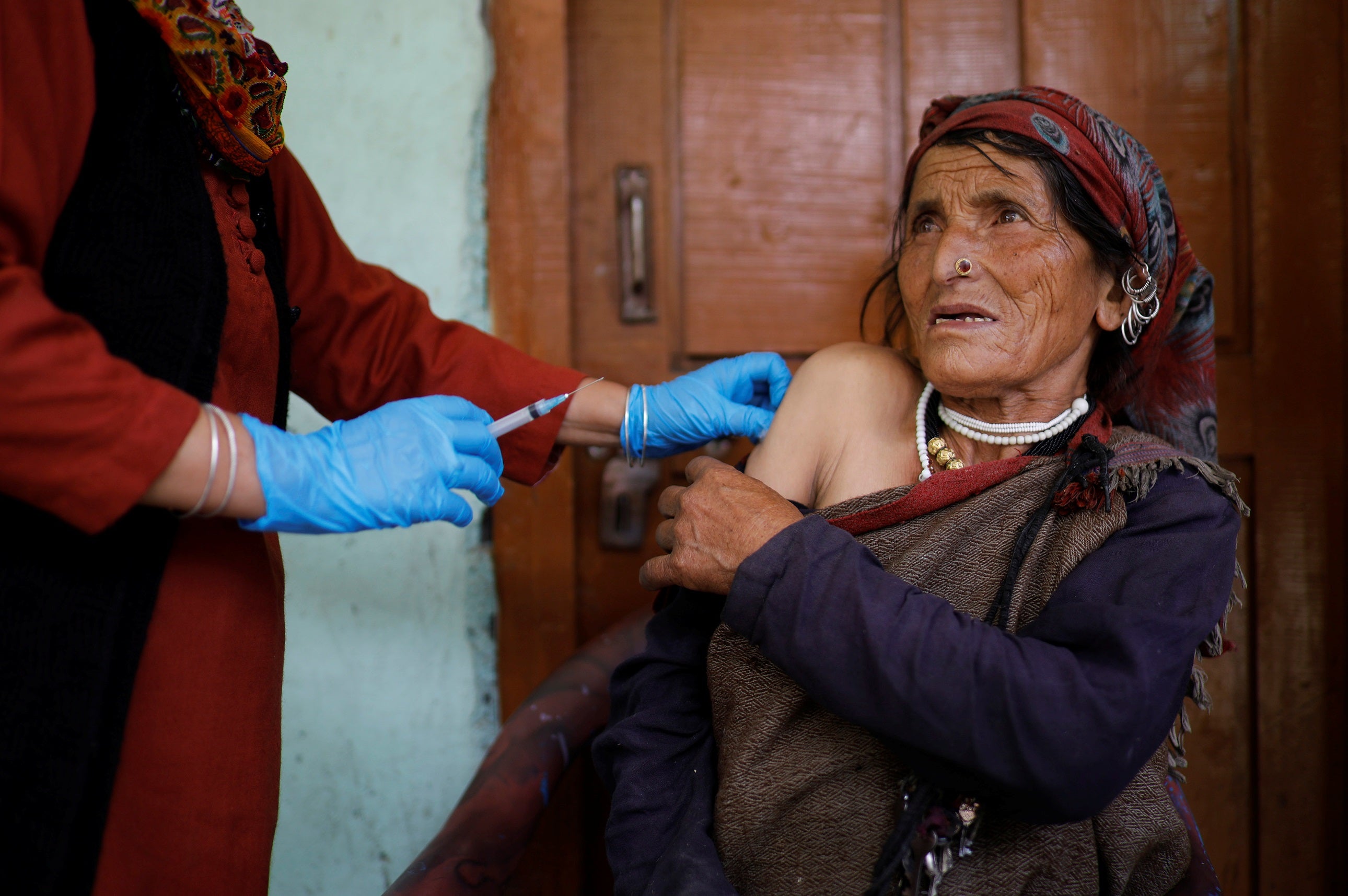#CountCHWs: Campaign launched to establish national health worker registries
Most countries don’t know how many community health workers they have, how to contact the ones they do, or even where those workers are located. Now, more than 100 health organizations, health ministries, and funders are calling for that to change

COVID has highlighted a severe shortage of health workers around the world and at the same time, demonstrated the need to use every one of those health workers strategically to maximize impact and efficiency. Toward that end, more than 100 health organizations, health ministries, and funders have launched a campaign to encourage governments to establish national community health worker (CHW) registries to help ensure every CHW is counted and leveraged to achieve maximum impact.
At the virtual launch event for the #CountCHWs campaign, experts stressed that such registries are urgently required to properly manage health workforces and plan services. Without them, they said, it's difficult to know how many CHWs are actively working in a country, as well as their exact locations, accreditations, and competencies.
When COVID began infecting people around the world, UNICEF’s Maureen Kerubo Momanyi said at the launch event held on January 20, governments raced to protect frontline health workers and prevent them from becoming carriers of the virus. But protecting CHWs from COVID-19 proved exceedingly difficult for many reasons, including the fact that many governments didn't know how many CHWs they had or where they were located.
The data on CHWs is so incomplete that the World Health Organization’s estimate of three million CHWs globally is based on data from only 75 countries. What’s more, 40 percent of that data is more than a decade old. This lack of information has frustrated efforts to procure and distribute the correct amount of protective gear for CHWs and hampered efforts by governments to effectively leverage these health workers during the pandemic.
“During COVID, it was hard for us to know who the CHWs are and where they are,” said John Wanyungu, from Kenya’s Ministry of Health, who noted that his country had current lists of CHWs for only 15 of its 47 counties. “We would like to expand our list to all counties,” he said.
Brahima Kone of Mali’s Ministry of Health confirmed his country has no centralized list of its 3,000 CHWs. Instead, he said, various departments maintain their own lists to serve their own needs. For example, there is a list for supervision, another list for payment, and so on. Some of these lists are georeferenced and contain contact information, but others do not. “We know we can better manage [CHWs] on the ground if we have a unified, national, georeferenced, up-to-date list. Currently, we update our list only once a year,” he said.
However, the event's participants said establishing a CHW master registry is only the first step – the registry also has to be georeferenced, meaning the locations of the CHWs across a country would be carefully mapped out. Several organizations leading the campaign, including UNICEF, The Global Fund, Living Goods, Health GeoLab, Clinton Health Access Initiative, and Community Health Impact Coalition, have developed a guide for governments committed to establishing a CHW registry. The document provides governments and their technical and financial partners a roadmap for generating, sharing, and maintaining a national, up-to-date, and georeferenced list of CHWs, as well as lessons learned from Kenya, Mali, Sierra Leone, Uganda, and Zambia.
The campaign to promote national registries is part of a larger movement to professionalize and fully leverage the potential of CHWs around the world. “Community health workers are an absolutely vital component of the health system we all depend on,” said Global Fund Executive Director Peter Sands at the event. “Unfortunately, we take them for granted... Too often community health workers are uncounted, unpaid, unheard.”
Margaret Odera, a CHW from Kenya who participated in the event, agreed. Although she and her fellow CHWs “have been the cornerstone of community health, nobody recognizes,” she said. “We exist, yet we don’t exist.”
The professionalization of CHWs around the world could be accelerated if governments thought of CHWs not as a cost, but as an investment, said Dr. Raj Panjabi, co-founder of Last Mile Health, who currently leads the U.S. President’s Malaria Initiative. Dr. Panjabi cited research indicating that investments in CHW programs, broadly, could achieve a return on investment as high as 10 to one as a result of increased productivity, risk reduction from disease outbreaks, and higher employment.
“The world has counted on CHWs to extend [primary health care] and fight pandemics from Ebola to COVID,” said Dr. Panjabi. “We all agree we can do better by actually counting them.”
